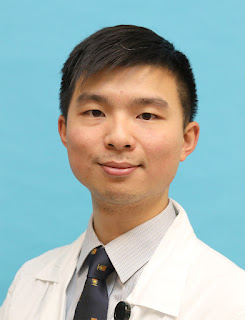There are so many components when it comes to stroke research, and the Seven Minutes in Stroke series highlights the part played by researchers. Over the years we've covered so many researchers and their motivations, highs and lows, and the ever important quesiton of personal life balance. We love to hear your responses and invite researchers to email Seven minutes in stroke answers to carmenl@world-stroke.com. Now, let me introduce Dr Anderson Tsang submitting author fo the article 'Overview of endovascular thrombectomy accessibility gap for acute ischemic stroke in Asia: a multi-national survey' that has recently been published in the Interntional Journal of Stroke.
1. What inspired you towards neuroscience?
I have always been intrigued with the functional eloquence of the central nervous system and became interested in clinical neuroscience during my formative years in medical school. The localization of cognitive abilities to different areas and circuits of the brain and the plasticity of the developing brain was fascinating to me. As a medical student, I was fortunate to be exposed to laboratory work on neuro-regeneration as well as the rapidly developing field of neurosurgery, which further strengthened my conviction in a neuroscience career.
2. Why stroke?
Stroke is one of the most common, unpredictable and devastating disease faced by mankind. While previously considered an irreversible event with much of the care focused on rehabilitation, the development of acute revascularization therapies such as thrombolysis and thrombectomy in the past decade have completely shifted the attention to emergency stroke reperfusion. Successful acute reperfusion therapy can potentially reverse the debilitating deficits of a severe stroke, and witnessing the quick recovery of these patients is extremely gratifying for the medical team. I am excited to be part of this paradigm shift in stroke treatment.
3. What have been the highs so far?
To be able to work with a great team of dedicated neurosurgeons and nurses is a blessing. I am fortunate to have wonderful colleagues who love what we do. The position as an academic neurosurgeon enabled me to make international friends with common interest and inspired my continuous pursuit in this field.
4. What have been the lows?
Driving change in the local stroke care system has been painfully difficult, in part due to bureaucracy and politics. The lack of support and interest in clinical research locally in comparison to other developed healthcare systems is also disappointing.
5. How do you balance work life with the needs of home life?
It is an ongoing challenge and I can’t say I have this figured out, especially with a new baby in the house now. Family will always be the priority and thankfully my wife Jennie has been very supportive. I do believe that balanced and quality family / personal time is essential to a productive professional life.
6. Who are your most important mentors and how did you find them?
I am very grateful to Dr. Wai Man Lui for introducing me to the field of vascular and endovascular neurosurgery. His genuine care for the patient set a high standard for the team. Prof. Gilberto Ka Kit Leung is instrumental in my development as an academic neurosurgeon and has given me countless opportunities. My interventional neuroradiology fellowship mentors Prof. Timo Krings and Prof. Vitor Mendes Pereira are phenomenal teachers in neurovascular anatomy and endovascular techniques. To be able to work alongside these giants is an inspiring experience.
7. What are your most important collaborations and how have you built them?
Multi-disciplinary research is often the most exciting and our projects with engineers, statisticians and computer scientists in machine learning and artificial intelligence application in stroke is rapidly progressing. My time in Toronto during my fellowship training has also build a network of personal and professional friendships which supported my work and generated many new ideas.
Dr. Anderson Chun On TSANG
Clinical Assistant Professor, Division of Neurosurgery, Queen Mary Hospital, The University of Hong Kong, Hong Kong.



